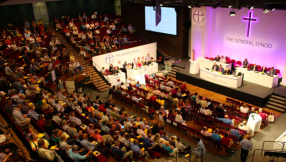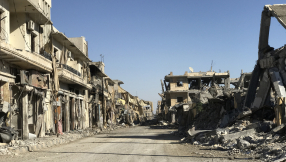Gaza humanitarian crisis worst since '67
Food shortages, crumbling health services and a water and sewage system close to collapse are all part of the daily misery facing 1.5 million Palestinians in Hamas-controlled Gaza, a report by a coalition of British relief groups said.
"As we speak, sewage is literally pouring into the streets," said Geoffrey Dennis, head of CARE International, one of the eight non-governmental organisations behind the report.
"Over the past three weeks we've only been able to send in food and medicine and the aid dependency is rising."
Israel imposed restrictions on the flow of people and goods and virtually froze economic activity last June when Hamas Islamists seized control of Gaza.
It tightened the blockade in January, limiting supplies of fuel and other goods in what it described as a response to cross-border rocket fire by militants.
The report painted a picture of an enclave held hostage by the embargo, which it said had worsened poverty and unemployment, crippled education services and made 1.1 million people - 80 percent of the population - dependent on food aid.
It said the health system was in tatters, with hospitals facing daily power cuts lasting eight to 12 hours a day due to fuel and electricity restrictions.
Almost 18 percent of patients seeking emergency treatment outside Gaza last year were refused permits to leave, it said.
A senior U.N. official warned the dire conditions outlined in the report would be worsened by any escalation of Israeli military action in response to indiscriminate rocket attacks from Gaza.
"It would be devastating," John Ging, director of United Nations Relief and Works Agency in Gaza, told Reuters by telephone.
"The whole infrastructure is in a state of collapse, whether it's water, sanitation or just the medical services... If there's a further military offensive it will again just add and compound an already desperate situation."
Aid groups and legal experts have called Israel's blockade illegal under international law because it constitutes "collective punishment" of the entire population.
"It's grossly disproportional," Geoffry Binder, an expert on international humanitarian law in London, told Reuters.
"What we're dealing with here is a few rockets coming from presumably one small corner of Gaza. And the response is the blockade and the destruction of hundreds of lives and the impoverishment of the whole area."













